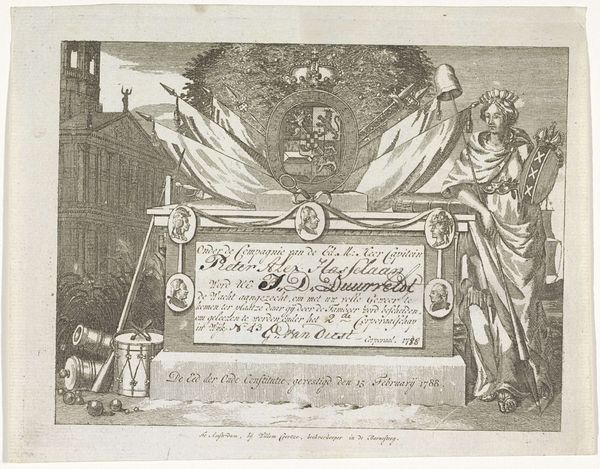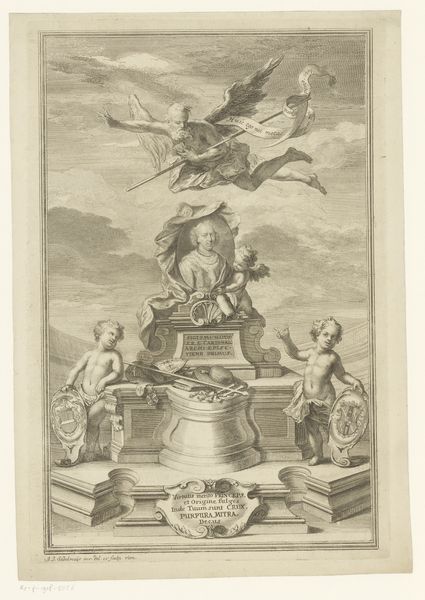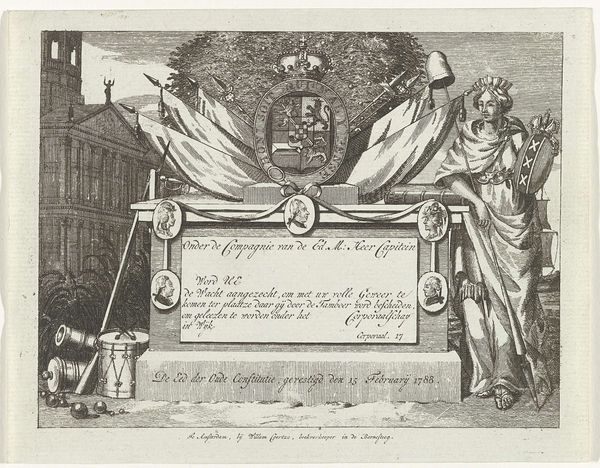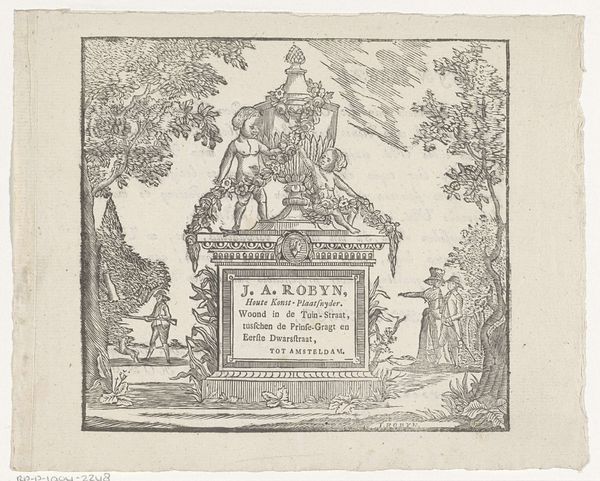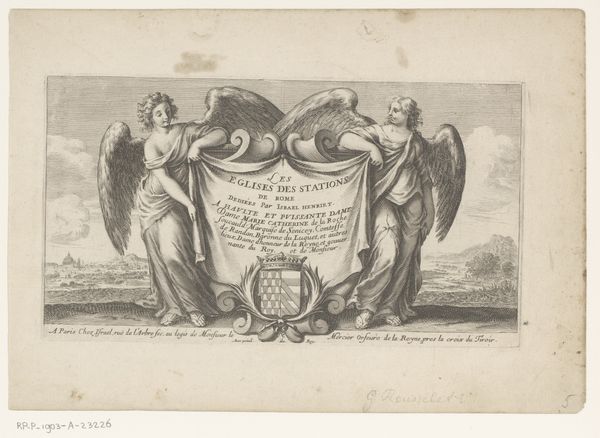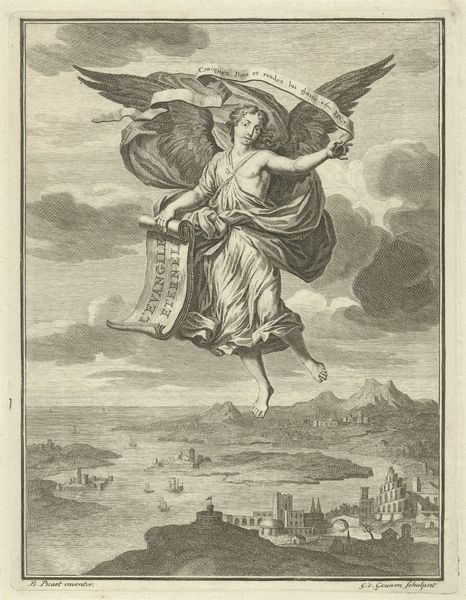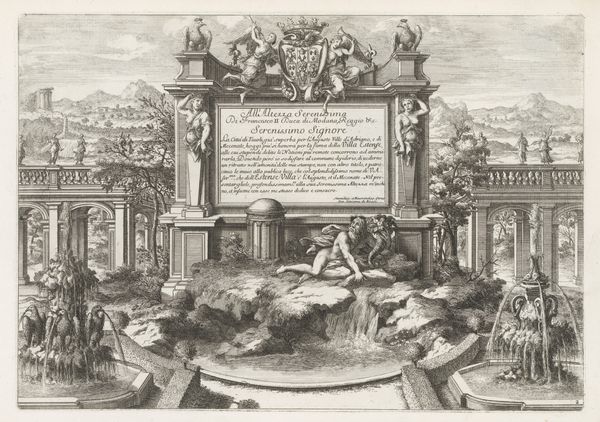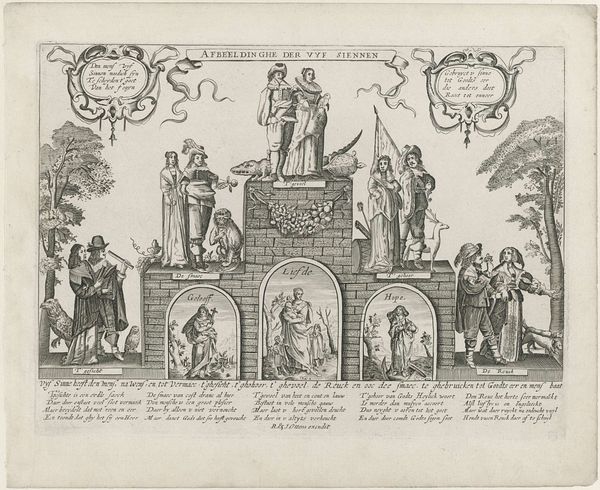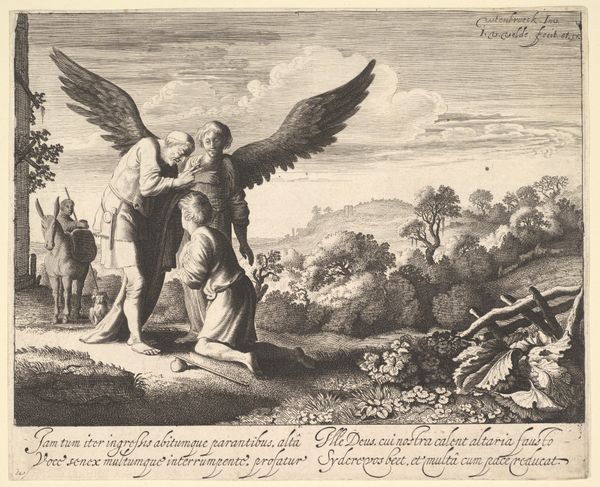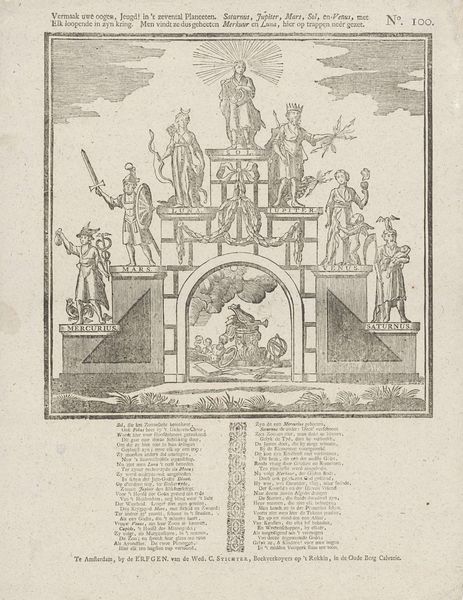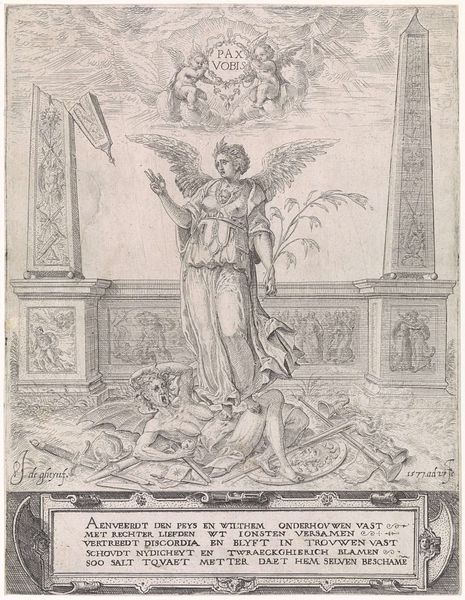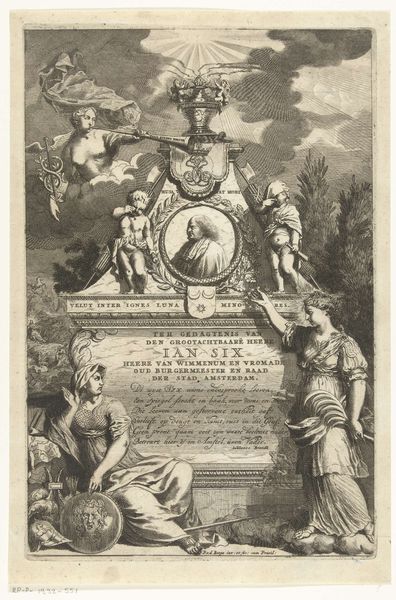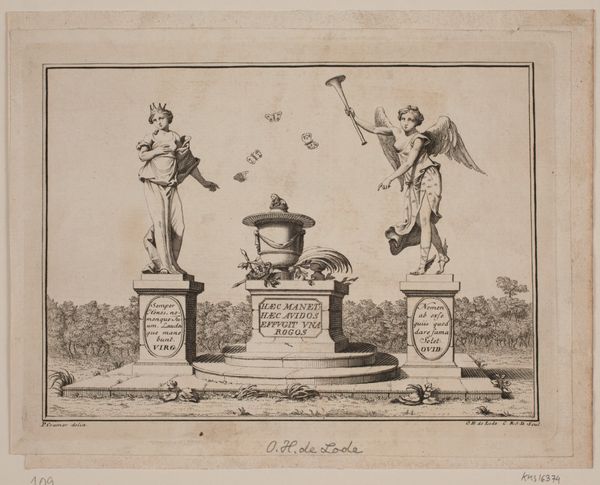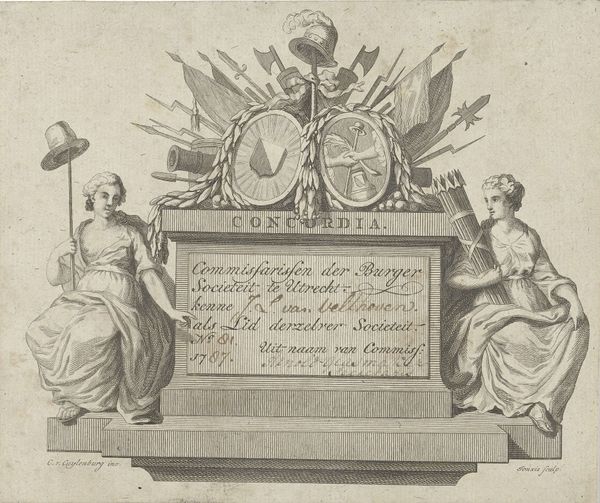
print, engraving
#
allegory
#
baroque
# print
#
perspective
#
figuration
#
line
#
cityscape
#
history-painting
#
italian-renaissance
#
engraving
Dimensions: plate: 18.1 x 25.2 cm (7 1/8 x 9 15/16 in.) sheet: 29 x 39.5 cm (11 7/16 x 15 9/16 in.)
Copyright: National Gallery of Art: CC0 1.0
Ercole Bazicaluva made this dedication page with statue around 1612 in Rome, using etching. This printmaking technique involves coating a metal plate with a waxy ground, then drawing through it with a sharp needle to expose the metal. The plate is then immersed in acid, which bites into the exposed lines, creating grooves that hold ink. What strikes me most is the intense labor required. Look at the intricate details of the angel Fama, the lettering, and the landscape in the background. Every line had to be carefully etched, demanding skill and time. The contrast between the delicate lines and the grandeur of the subject matter creates a tension, reflecting the social hierarchy it represents. This print not only showcases Bazicaluva's technical prowess but also underscores the social context of artistic production. Printmaking, in this era, served as a powerful tool for disseminating images and ideas, playing a crucial role in shaping public opinion and celebrating the elite. It prompts us to consider the networks of labor, patronage, and consumption that underpinned artistic creation.
Comments
No comments
Be the first to comment and join the conversation on the ultimate creative platform.
